Design learning space
New study furniture at Saarland University
What is needed for an attractive student learning atmosphere?
To answer this question, the university-wide public was invited to take part in an ideas competition in summer 2022. The aim was to establish innovative and forward-looking student learning spaces for self-study, collaborative learning or individual digital participation in courses at Saarland University by December 2023. Under the project name ‘LernraumGestalten’, a total of 33 applications were submitted by applicants from various areas of the university by June 2022. These included ideas from UdS employees as well as several applications from students. As part of further planning, 14 applications were selected and implemented. The implemented proposals are a real firework of ideas! They range from increasing the attractiveness of existing study workstations by purchasing new furniture or digital components to the use of new learning methods and the creation of a parent-child room.
More than just colourful chairs
As part of the realisation, three great ideas were developed to improve the outdoor areas of the Saarbrücken campus. These are, on the one hand, areas for relaxation and, on the other, areas that can be used for collaborative learning. During the design phase, four areas were defined, each of which will be used to test an independent concept.
The new learning spaces
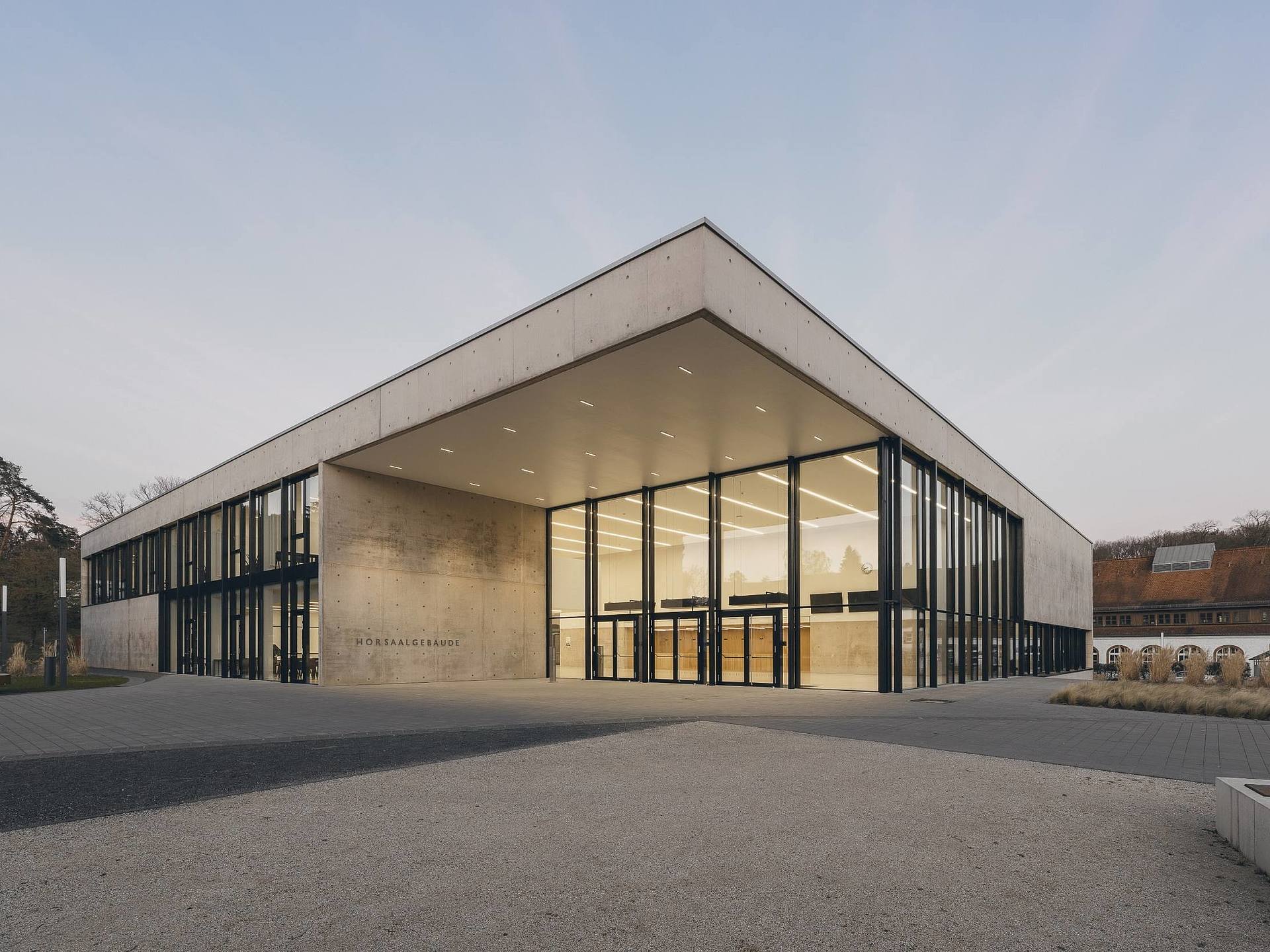
Virtual Reality Simulationsraum
Campus Homburg Geb. 35, Raum OG 06
In future, virtual reality content is to be integrated even better into student teaching at Saarland University Hospital. Some successes have already been achieved here in recent years. The aim was to bring practical learning content to medical students during the first Covid lockdown in 2020, even though they were not allowed to enter the hospital during this time.
Contact person:
Albert Omlor (Internal Medicine)

Homburg Medical Escape Room (HOMER)
Campus Homburg Geb. 35 - Raum OG 06
In a collaborative approach in the style of an escape room, students solve prefabricated puzzles and patient cases from the field of infectious medicine together using medical knowledge and thereby playfully achieve various learning objectives on a cognitive, psychomotor and affective level.
Contact person:
Cihan Papan (Medical Microbiology and Hygiene)

Self-study area
Campus Saarbrücken Geb. A4.3
In their first years of study, biology students are mainly taught in the biosciences practical building (A 4.3, Campus SB). The students spend a large part of their day in the building and use the available rooms, such as seminar, microscopy and preparation rooms, intensively outside of the actual lectures for preparation and follow-up work, writing minutes, preparing seminar presentations or in smaller study groups.
However, they do not have their own study room and cannot enter the building on their own. In terms of time, they are tied to the teaching staff's attendance times, who have to make the rooms and equipment accessible to them. However, the students would often use the building's infrastructure beyond this time and independently of the lecturers.
Contact: Björn Diehl (ZHMB)

Multifunctional student workspace
Campus Saarbrücken E2.6 - Raum 0.12
A room where students can study together whenever they want and have access to technical equipment (Smartboard), a projector or blackboards. It is possible to temporarily rent the room as a study group from the physics student council.
Contact persons: Physics student council

Upgrading the student self-study areas
Campus Saarbrücken Geb. C7.1 - Räume -1.07, -1.08 und -1.16
The department has been providing students with rooms in the basement of building C71 for several years. These are used intensively by students, mainly for individual work / self-study and participation in online courses. In order to make the rooms more attractive for small group work, these rooms have been equipped with other (smaller) tables and whiteboards.
Contact: Stefan Thater (Linguistics)
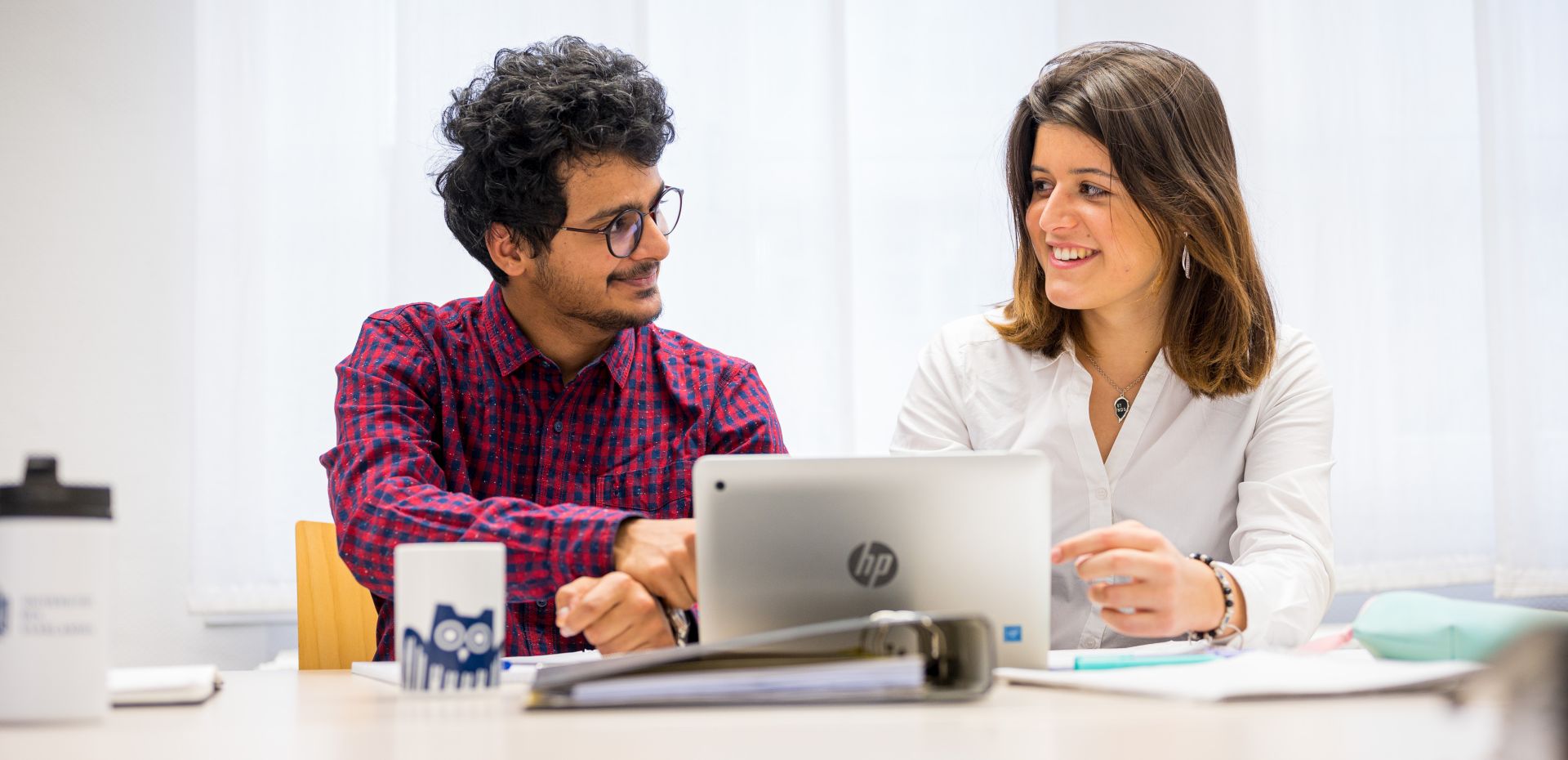
Maker Space Campus
Saarbrücken Geb. B2.2 - Raum 0.03
The MakerSpace offers student teachers the opportunity to look inside textbooks. These are necessary for the preparation for the didactics courses in chemistry.
In addition, the MakerSpace provides a place where student teachers can exchange ideas on topics relevant to their studies.
Contact: David Aaron Schaaf (Physical Chemistry)
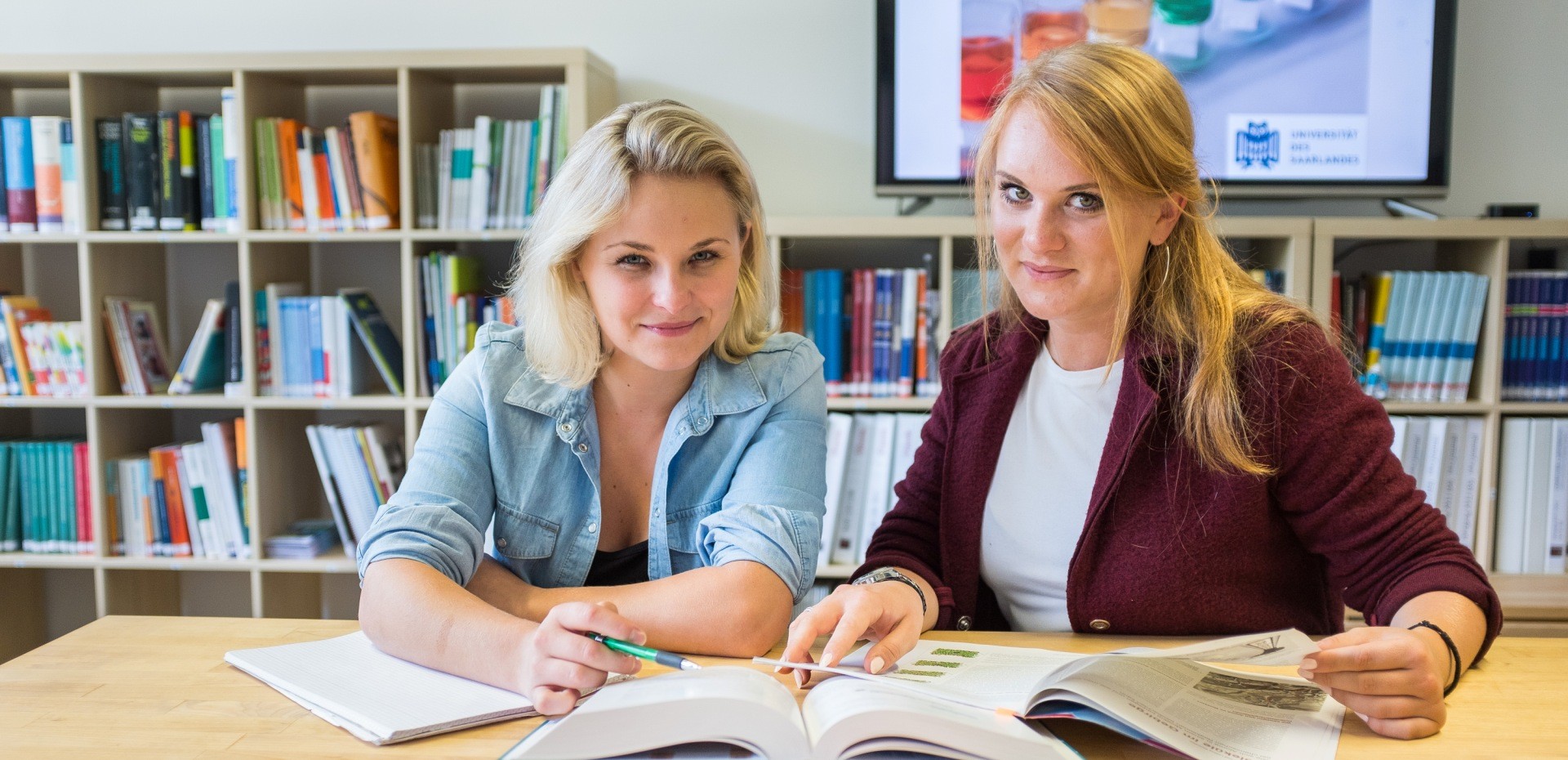
Workspace and Thinktank
Campus Saarbrücken Geb. B2.2 - Räume 1.05 und 1.06
The ChemSpace is a room where chemistry students can work together. This is necessary for writing protocols and working on exercise sheets.
The meeting place for students is intended to promote the formation of study groups, which are essential in chemistry studies.
Contact: David Aaron Schaaf (Physical Chemistry)
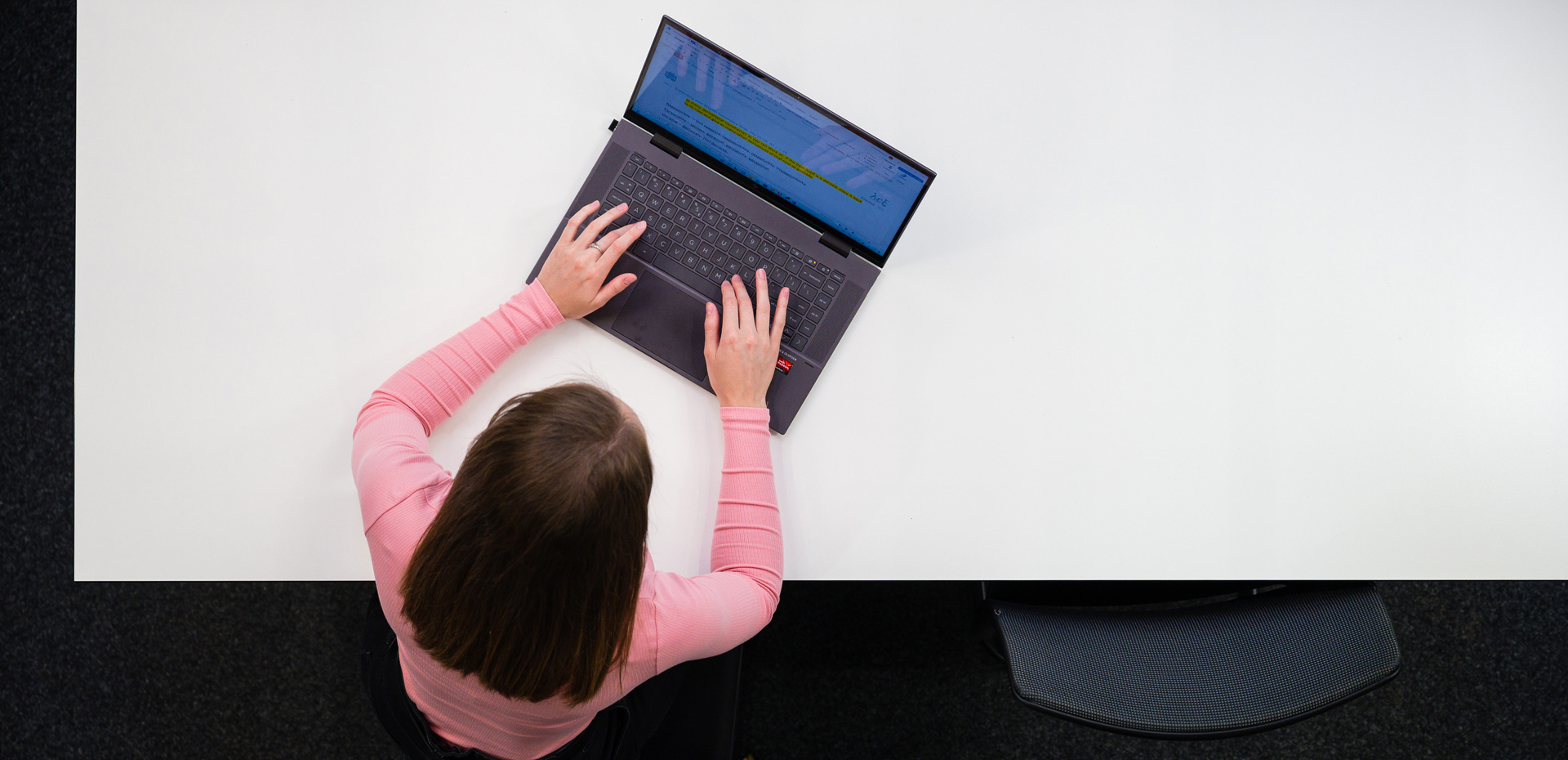
Digital reading room
Campus Homburg Geb. 74 - Raum 1.05
Use as a study room and as a room for participation in online formats, which also have priority in this case. The room should be available for this purpose during normal university hours and as an additional study room until 21:00.
Contact persons: Medical student council

Creative room
Campus Saarbrücken Geb. B1.1 - Raum 1.28
Creation of a flexible workspace for active, joint, creative collaboration between heterogeneous groups. The area of the former open stacks was transformed into a public-intensive area where people can learn and work together - both analogue and digital. Mobile soundproofing elements are used to create small internal island areas. In this room, mobile furnishing elements (tables, chairs, whiteboards) are provided without exception, which can be moved and combined as required.
Contact: Desirée Griesemer (SULB)

Hybrid work booths
Campus Saarbrücken Geb. C6.2 - EG NT-Bib
In the course of the pandemic-related restrictions and the establishment of hybrid courses and teaching concepts, a new need for workspace has arisen: Students are now in the situation of switching from face-to-face to online events on campus and vice versa. There is often a need for students to have a place where they can give a presentation, speak or discuss without being disturbed during an online event.
Contact: Elbe Bubel (NTNM Library)

Learning atmosphere
Campus Saarbrücken Gebäude E1.3 - Räume 1.05 und 1.06 & Gebäude E2.4 - Raum 3.17
Although these rooms are functionally (and very sparingly) furnished, students are regularly put off by the atmosphere of open-plan offices. In addition to the ‘Comfortable learning atmosphere through colour’ project of the MI faculty, flexible learning islands are to be created in this project so that - depending on requirements and without compromising comfort - a discussion round in the software practical course is just as possible as individual or team work on exercise sheets. This requires suitable furniture, a flexible lighting system and acoustic measures (flooring, sound insulation). If possible, the project should be realised in all the rooms mentioned in order to ensure uniform acceptance and thus uniform occupancy rates. The generous provision of student workstations in a cosy learning atmosphere accompanies the Faculty MI's efforts to strengthen cooperation in small teams, especially in the post-corona phase, and to be able to work together to fill any gaps. We would like to be able to offer students in the first semesters in particular optimal framework conditions.
Contact: Erich Reindel & Michael Bildhauer (Faculty MI)
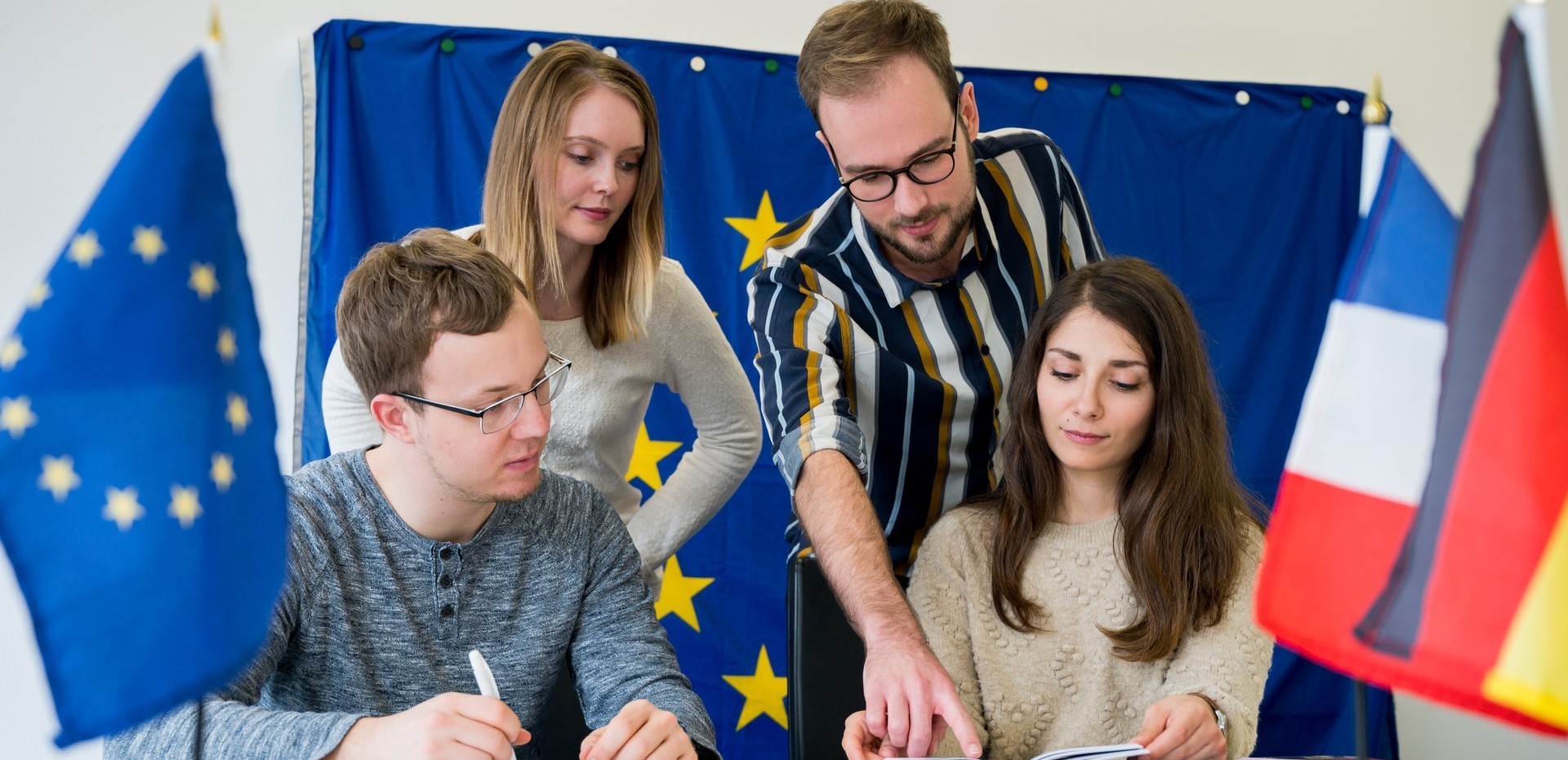
Lernraumkonzept »Connecting Europe«
Campus Saarbrücken Geb. B2.1 - UG Bib., EG CipPool und 1.17
Implementation of a future-orientated and innovative learning space concept (Connecting Europe) that enables collaborative and self-directed learning for all students, especially for international students at Saarland University. At the same time, the aim is to create a modern, European teaching and learning atmosphere that is open to all students on the university campus. A forward-looking learning space concept means designing physical spaces in such a way that they support innovative and forward-looking higher education and at the same time enable practice-orientated and research-based learning. Spaces should be designed in such a way that they optimally promote the individual learning process of the students. But it should also be usable as a good place to spend time, e.g. to exchange ideas or take a break between face-to-face lectures and to relax. Free access to information, media and publications remains inclusive. Access to modern technical equipment within a short distance is also of great importance (internet, smartboards, digital library, scanner, printer, photocopier, whiteboards)
Contact: Katrin Lück (Europa Institut)

Outdoor learning and work areas
Campus Saarbrücken
As part of the ideas competition, three proposals for outdoor learning and working were submitted. These mainly involved the creation of work facilities and areas for students and teaching staff to socialise. During the planning process, four locations were selected on the Saarbrücken campus:
- Open space Campuswiese
- Open space at the SULB
- Open space by the building
- Grove of trees east of the Audimax
Contact persons: Campus Development Department (CE Department), Desirée Griesemer, Tina Hellenthal-Schorr & Sabine Penth

Parent child room
Campus Saarbrücken Gebäude C6.2 - Raum 1.02
Studying with a child? This is a challenge that demands a special talent for organisation from student parents. Lucky are those who can fall back on a daycare centre or grandparents in the immediate vicinity. But sometimes the best childcare options don't work, and then student parents may need a place directly on campus where they can take their child at short notice and without complications. We have created such a place with our new parent-child office in the NTNM library. The room is equipped with a desk for parents and also offers a breastfeeding area with privacy screen, as well as play and rest facilities for the little ones. We have also thought of our international students when equipping the library and provide a colourful range of reading books in various native languages
Contact person: Elke Bubel
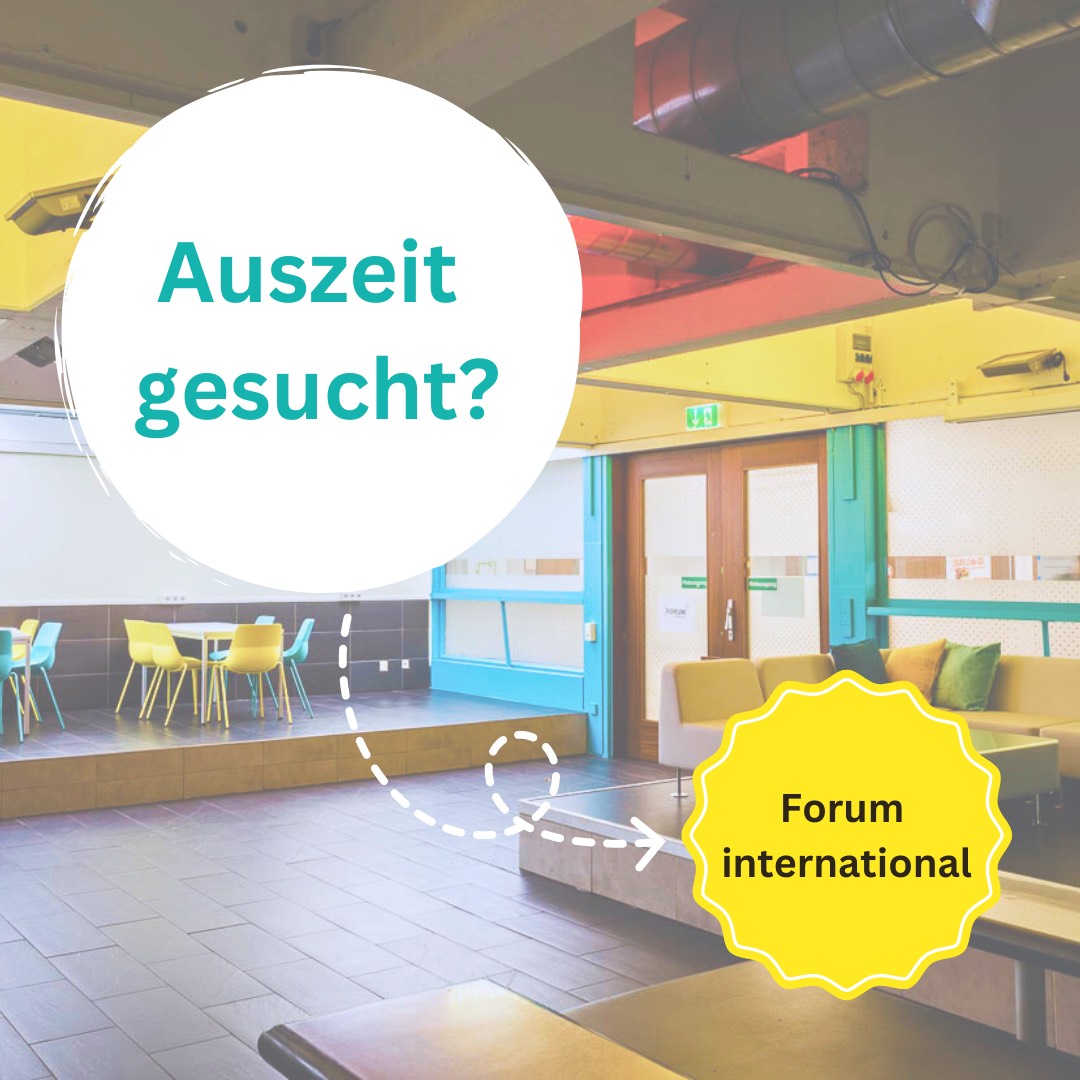
Auszeit gesucht? Die Gruppenarbeit miteinander besprechen? Das
selbstgemachte Essen essen?
Looking for time out? Discussing the group work together? Eating the
eat a home-made meal?
The International Forum of the Studierendenwerk is available for all of this
is at your disposal:
Monday to Thursday: 10 am - 3.30 pm, Fridays until 12.30 pm, Building
D4 1 (Mensa) in the basement.
Feel free to drop by!
Ansprechpartnerinnen
Katharina Kessler (M.A. Digital Media)
Head of Teaching-Learning-Innovation Department
Tel.: 0681 302-4780
katharina.kessler(at)uni-saarland.de

